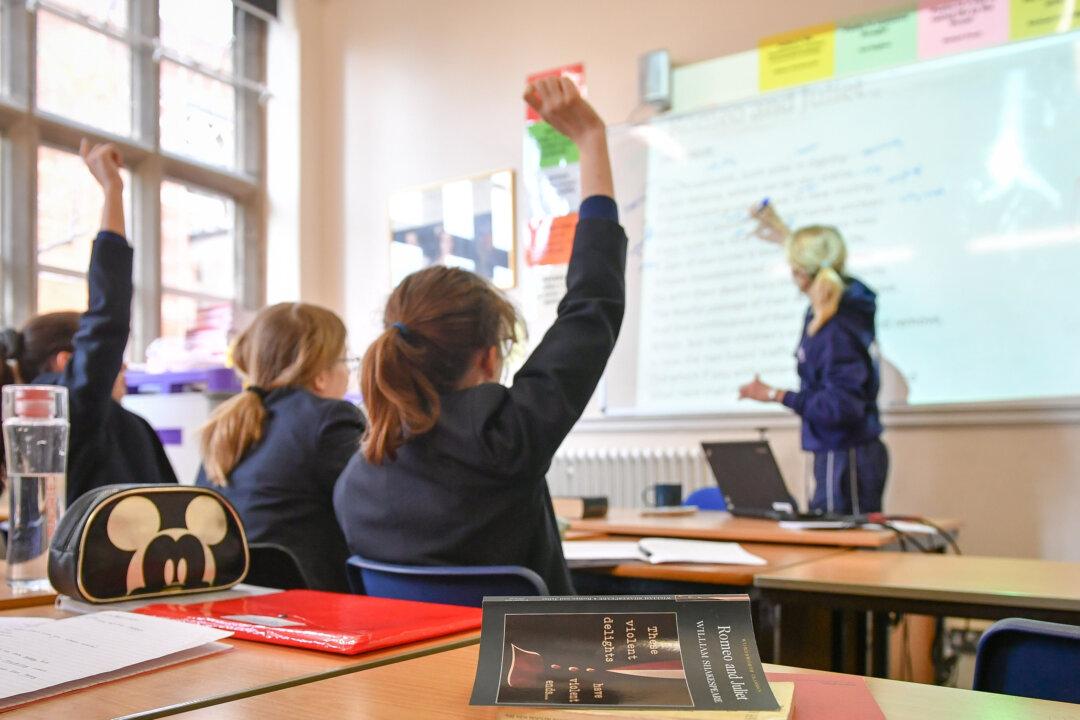The British government is to review how relationships and sex education are being taught in schools, following concerns from MPs that children are being exposed to “extreme, sexualising” content.
On Wednesday during Prime Minister’s Questions, Rishi Sunak said he asked the Department for Education (DfE) to “ensure that schools are not teaching inappropriate or contested content” in Relationships, Sex, and Health Education (RSHE).





